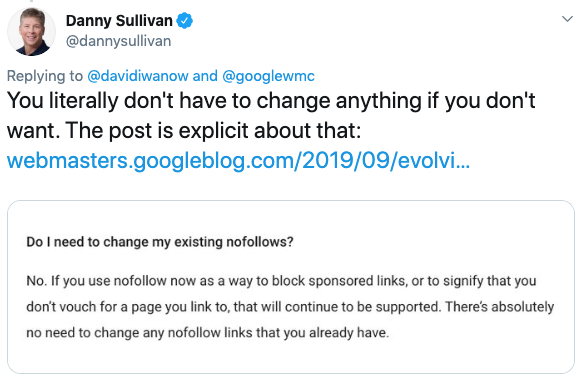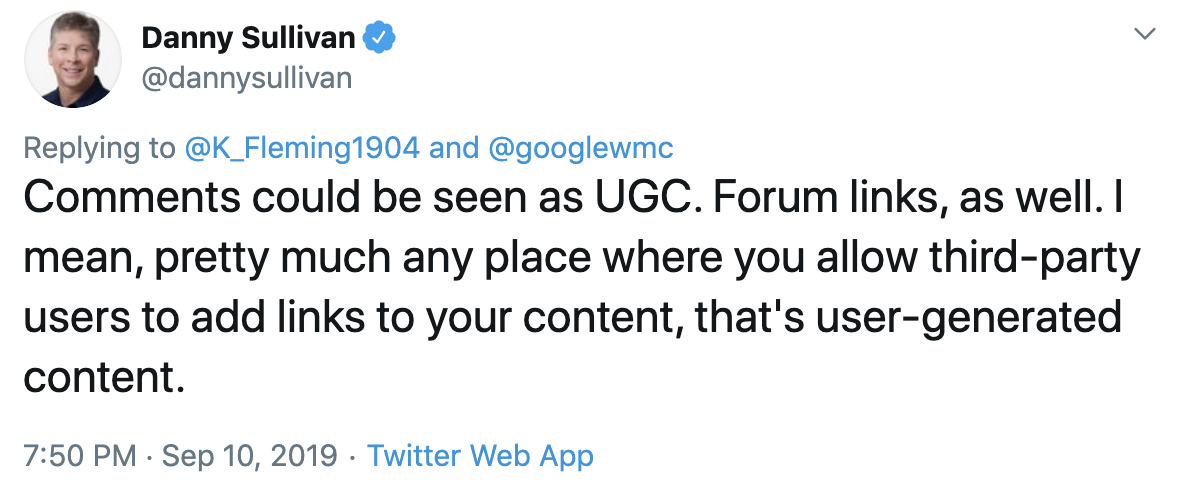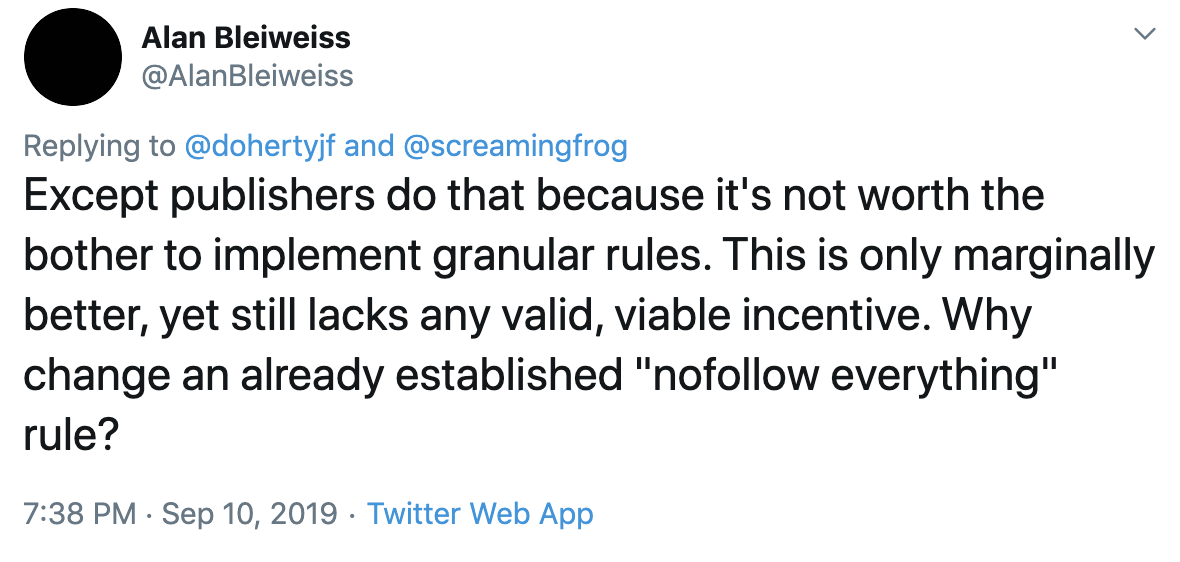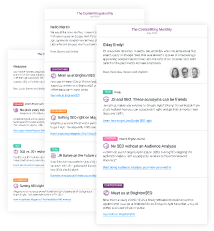New link attributes introduced, and nofollow MAY now impact rankings
-
September 11, 2019
15 years ago the link attribute rel="nofollow" (opens in a new tab) was introduced to help fight webspam.
Yesterday, Google announced (opens in a new tab) the introduction of two new link attributes called: rel="sponsored" and rel="ugc".
These two new link attributes should explain the nature of links better to Google. This is an interesting development, because that sounds a lot like Google is having issues determining the nature of links, and needs help from the SEO community in getting it right.
Quote from Google:
"Using the new attributes allows us to better process links for analysis of the web. That can include your own content, if people who link to you make use of these attributes."
What's even more interesting is that Google has announced to start using the rel="nofollow" link attribute as a "hint", rather than a "directive". That has a much bigger impact on the way we do SEO for two reasons:
- The general consensus is that links with the
rel="nofollow"link attribute don't pass authority, meaning that these links won't be counted. But now Google can choose to ignore this hint. We feel Google's been treating therel="nofollow"link attribute like this for a while already, because it just doesn't make sense to completely devalue links from sites that have a strong editorial process (and vice versa). - Oftentimes the
rel="nofollow"link attribute is used to discourage search engines from crawling (opens in a new tab) certain pages, such as faceted navigations. While this isn't a perfect approach, sometimes it's the only thing keeping search engines out from crawling.
Links with rel="nofollow" can have a positive impact on rankings
As we already mentioned above, we think Google's been attributing value to links with the rel="nofollow" link attribute for some time already, and now they've made this public.
Quote from Google:
"When nofollow was introduced, Google would not count any link marked this way as a signal to use within our search algorithms. This has now changed. All the link attributes – sponsored, UGC and nofollow – are treated as hints about which links to consider or exclude within Search."
This will change the way SEOs approach gaining links.
From March 1, 2020 rel="nofollow" will become a hint for crawling purposes
While the new link attributes are already being used as hints for ranking purposes, the change regarding the way Google handles the rel="nofollow" link attribute will change from March 1, 2020.
From there on, using the rel="nofollow" link attribute stops being a good way to discourage Google from crawling certain pages. It's never been fool-proof approach, because if you forgot to put the rel="nofollow" link attribute on a link or external sites linked to your faceted navigation they'd still be crawled (and indexed).
In order to prevent crawling of certain sections of your site, use the robots.txt (opens in a new tab), robots directive (opens in a new tab) or HTTP authentication (opens in a new tab).
For a full overview of the pros and cons of each method, check out this table (opens in a new tab).
Recommended reading:
- The ultimate guide to controlling Crawling and Indexing (opens in a new tab)
- rel="nofollow" link attribute explained (opens in a new tab)
Google: "You don't need to make any changes"
Google said that you don't need to make any changes to your links because it will not have a noticeable difference.

We think they're hoping publishers will adopt the new link attributes to help them understand the nature of links better.
When should you use rel="sponsored"?
You should use the rel="sponsored" link attribute for links in content that have been paid for, one way or another.
Examples for use of the rel="sponsored" link attribute:
- An advertorial about a product or service that includes a link.
- Google's link on Apache's sponsor page (opens in a new tab) that they pay $125,000 / year for.
When should you use rel="ugc"?
You should use the rel="ugc" link attribute for links in user-generated content ("UGC" for short) to indicate that it's not been contributed by a third-party.
Google's Danny Sullivan said (opens in a new tab):

Follow that logic, that could imply that even links in articles from contributors to sites like Search Engine Journal and Search Engine Land could be eligble for this link attribute. It's quite unclear yet.
Examples for use of the rel="ugc" link attribute:
- Links in blog comments
- Links in forum posts and signatures
- Links on platforms such as Stack Overflow, HackerNews, Reddit and Quora.
When should you use rel="nofollow"?
While using the new link attributes is optional, if you take them into account the rel="nofollow" link attribute is basically the fall-back when using the rel="ugc" and rel="sponsored" doesn't make sense and you still want to signal that you don't want to credit the page you're linking to.
Examples for use of the rel="nofollow" link attribute:
- When you're covering a story about someone that you don't want to credit.
- Widget links
Why has Google started to use rel="nofollow" as a hint rather than a directive?
A possible reason for this announcement is because some publishers introduced blanket rel="nofollow" link attributes on all external links to discourage their editors from selling links. This may have thrown of Google's ability to accurately determine what pages should be ranking where, leading them to more granular options to determine the nature of a link.
Will publishers adopt the new link attributes?
Alan Bleiweiss doesn't think so (opens in a new tab) because there's no financial incentive for them — and that makes total sense:

Publishers have nothing to gain, it only leads to more work. Sure, some will adopt it but we think they need a bigger incentive to do so.
Can you combine these link attributes?
Yes, for instance you can include the link attribute rel="nofollow ugc to give additional context and to make sure you treat the links ono your site is backwards-compatible with for example backlink data providers such as Ahrefs, Majestic and Moz.
Do you need to update your current links with the rel="nofollow" link attribute?
No, according to Google there's no need for that.
We agree with that: you have enough on your plate, there's no need to create extra work.
Will these new link attribute have the same faith as link rel prev/next?
We think this is very likely. Right now, these new link attributes are a good way for Google to better understand the nature of links. They have value now, but after Google's figured it out using their machine learning algorithms it's likely they'll stop using these hints, much like the faith of the link rel prev/next pagination attributes (opens in a new tab).


